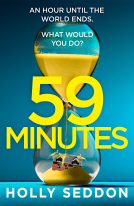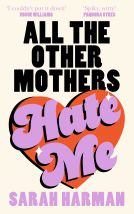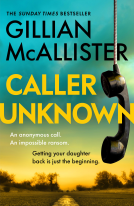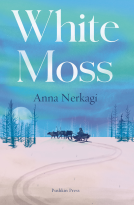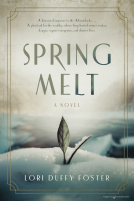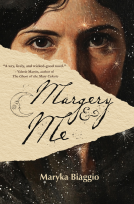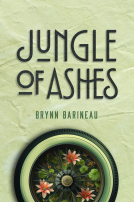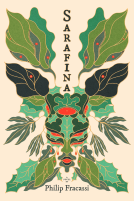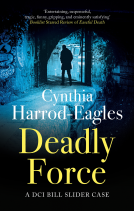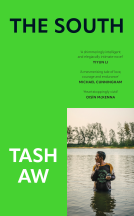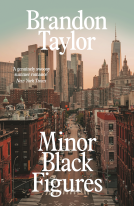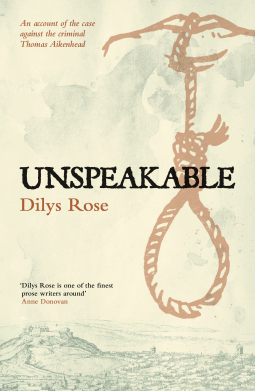
Unspeakable
by Dilys Rose
This title was previously available on NetGalley and is now archived.
Send NetGalley books directly to your Kindle or Kindle app
1
To read on a Kindle or Kindle app, please add kindle@netgalley.com as an approved email address to receive files in your Amazon account. Click here for step-by-step instructions.
2
Also find your Kindle email address within your Amazon account, and enter it here.
Pub Date 9 Mar 2017 | Archive Date 8 Mar 2022
Description
Based on a true case, a young man pays the ultimate price for saying what he thinks in this masterful historical novel by a writer at the height of her powers.
Edinburgh in the late 17th century is centre of religious authoritarianism, intolerance and fear. The flames of the city’s famous Enlightenment are yet to burn.
Based on the true story of Thomas Aikenhead, this is the fictional account of a 20 year-old student who was the last person in Britain to be tried and executed for blasphemy.
Dilys Rose is one of Scotland’s very best literary writers. This is a brilliant historical novel, from an acclaimed and award-winning writer at the height of her powers, with great resonance for today.
Available Editions
| EDITION | Paperback |
| ISBN | 9781911332169 |
| PRICE | £9.99 (GBP) |
Average rating from 24 members
Featured Reviews
 Fran E, Reviewer
Fran E, Reviewer
In 1697, University of Edinburgh medical student Thomas Aikenhead became the last person in England to be hung for the crime of blasphemy. A young Tom was very inquisitive. He wanted to know if more truth could be made by stretching the truth. Why, he wondered, did two of his sisters die in infancy. Why did the Lord need so many bairn? Do cats have souls, and if so, can cats go to hell?
Tom's early upbringing included weekly churchgoing where the minister preached fire and brimstone. One May day, several families including Tom's skipped church, choosing instead, to picnic by the river. Church elders were sent to determine who the Sabbath breakers were. Tom's mother was made to stand on a stool of repentance in church for six consecutive Sundays and be publicly humiliated along with gamblers and fornicators.
After losing both parents at a young age, Tom was sent to live with legal guardian, Sir Patrick Aikenhead. Thomas was deemed to be bright and well mannered. Sir Patrick, demonstrating Christian charity, sent Tom to the University of Edinburgh. The 1690's were a time of free thinkers. University libraries and booksellers stocked the works of Descartes,Spinoza and others. Students debated and hypocrisy abounded. Church informers were zealous.
"Unspeakable" by Dilys Rose is a beautifully written historic fictional account of the life of Thomas Aikenhead. Thomas lived in a time when disrespect for men of the cloth and a loose tongue invoked ecclesiastical authority to curb profanity and urge piety. An excellent read.
Thank you Freight Books and Net Galley for the opportunity to read and review "Unspeakable".
4 stars
This is the story of Thomas Aikenhead. He was a young man of just twenty when he was hanged for blasphemy. He was the last man to be hanged for blasphemy in the United Kingdom.
The book starts out when he was a child and carries on through to his time at the university, where his insatiable lust for learning got him into trouble. Thomas had a love of learning throughout his life. It started very early on and was demonstrated by his always asking questions – of everyone.
The eventual charges were that for more than twelve moths Thomas decried against the word of God and said that he preferred Mohammed above Jesus. He does not recall ever thinking on the matter of Mohammed and Jesus. He believes that his words were misconstrued. He has only stated what other people believe. He has no defense counsel, no one would come forward. There were witnesses who say that he blasphemed.
Some say that he was murdered.
This book, a historical novel, is a fascinating view of Scotland, its culture and people, during the 18th Century. It is well written and easily accessible.
Thanking Netgalley and Freight Books for forwarding to me a copy of this remarkable book to read.
 Philipa C, Reviewer
Philipa C, Reviewer
To discover that the subject of this novel young Thomas Aikenhead was a real person whose subsequent trial was an historic turning point in law proved an additional boost to a thoroughly interesting read.
However be prepared to struggle with parts of this book because of the broad Scottish dialect that is used by the author. As young Thomas learns about the consequences of his father's debts and lifestyle, he and his two sisters Katharine and Anna have a hard life to survive in the slums of Edinburgh. Thomas is very inquisitive and our senses are brought into play with the sights and sounds of the periphery of the well heeled parts of the city and the wonders of his father's apothecary shop. The predominance of a dour religious dominance that set the tone of life in 17th century Scotland is always to the fore and very rarely leads to faith or charity for these children.
Deaths and disease are never far away and the novel does at one point dip into a time when all hope seems lost. However a change of fortunes and move to the country revive a further twist in Thomas's life which will lead to further investigation and education as an aspiring student into the world of knowledge and religion. But as we know education can be a dangerous thing.
The author has researched this novel well and it brings forth some very interesting historical areas which made me more intrigued into this period of Scottish life. However the dialogue may prove too much for some south of the border.....
 Annemarie M, Educator
Annemarie M, Educator
An intriguing and wholly paradoxical read, following the true story of Thomas Aikenhead, a 20-year-old Scottish student, who was also the last British person to be hanged for blasphemy in 1697. There are many good aspects to this book, namely the fact that it is based on real events and the introducing of the characters and mystery into the events surrounding the storyline, though the biggest deterrent to the reading is undoubtedly the use of Scottish dialogue attributed to the whole of the speech throughout the book. Although this lends an authenticity to the writing and it places the reader directly in events at the time, there is no denying that use of this as a writing style forces the reader to work hard to understand what they are reading. There is no chance that this story can be rushed through - the reader must slow down to take in what they are reading and listen to the accents filling the mind as characters speak.
Another possible setback is the fact that there are so many things rushed through that we don't get to know, and that includes the characters themselves at times. Time rushes on and we are sent from place to place, without really getting to know how and why events take place. It is hard to fully engage with all the characters are they are not given the time and space to develop fully in parts. The writing style becomes a little dry through this and the reader loses the closeness they seek in order to get into the mind of the characters. We are shown that Aikenhead is a little outspoken and wholly inquisitive, even as a child, but we never really find out much about what he truly thinks. There are clearly issues within the background and growing up in the family, but, again, we are left to wonder and fill in the blanks a little too much - for a reader, this makes for a gap in the understanding, which is a shame in what has the potential to be a really good, intriguing event from history.
 elizabeth m, Reviewer
elizabeth m, Reviewer
<a href="https://www.goodreads.com/book/show/33954794-unspeakable" style="float: left; padding-right: 20px"><img border="0" alt="Unspeakable" src="https://images.gr-assets.com/books/1484929490m/33954794.jpg" /></a><a href="https://www.goodreads.com/book/show/33954794-unspeakable">Unspeakable</a> by <a href="https://www.goodreads.com/author/show/210452.Dilys_Rose">Dilys Rose</a><br/>
My rating: <a href="https://www.goodreads.com/review/show/1955144678">5 of 5 stars</a><br /><br />
There is no mystery about the fate of young Thomas Aikenhead, the protagonist of Dilys Rose's excellent new historical novel, "Unspeakable"; we know, right from the start, that he is destined to die by the noose which hangs so ominously on the front cover. The suspense in the novel lies in why he suffers such a dreadful fate: what is his crime? What factors in his character and in the culture and environment of the time and the place (Edinburgh, in the 1690s) bring him to such an unhappy end? <br />We first meet Thomas as a young boy, son of an Apothecary/Chirurgeon who, as a man of science encourages the boy's garrulousness and his habit of questioning everything he encounters around him. The opening chapter describes the exciting spectacle of the arrival of an elephant in Edinburgh. Young Thomas is, of course, enthralled. The people of the city flock to gaze on the exotic beast, just as at the end of the novel, they will gather to relish the spectacle of Thomas Aikenhead's hanging.<br /> This period of Scottish history, on the cusp of the Enlightenment, is a fascinating one, in which, essentially, two worlds collide: the modern spirit of scientific enquiry, discoveries and new inventions and the older tradition of unquestioning obedience to God epitomised in the dour, Scots Presbytrianism that hangs over the city like a pall, discouraging enquiry and harshly punishing any who offend against the rules imposed by the Presbytery, whether by fornication, Sabbath breaking or in any way challenging the doctrines of the Church. <br />For anyone of enquiring mind and independent thought, the atmosphere is challenging. For one who combines these qualities with an enjoyment of debate and a garrulous habit, like Thomas Aikenhead, it proves deadly. <br /> Dilys Rose's excellent eye for authentic, historical detail, combined with her skills as a storyteller and a creator of convincing characters, vivid scenes and lively, Scots dialogue, make this an outstandingly well written and engaging novel which I highly recommend.
 Anita W, Reviewer
Anita W, Reviewer
Unspeakable
This is the story of student Thomas Aikenhead, the last person to be hanged in Britain for blasphemy. It's a fascinating account of his life and times, rich in historical detail and from the first pages, I had a really strong sense of place, people and the repressive and controlling influence of the church. It's set in Edinburgh, a city I'm familiar with, and I found the place references fascinating. Many of the buildings and streets referred to in this tale, set in the late 17th century, are still around, so many of the events are easy to visualise, even in the context of a modern Edinburgh.
The dialogue is written with a distinct Scottish voice and use of language. Those unfamiliar with the dialect may find it a little difficult, at first, but it's so beautifully written, the words soon form their own shape and flow and I found it almost reads audibly with a Scottish accent! I love the way Dilys Rose uses language; it really adds to the richness of the story.
It's one of the best historical fiction books I've read in some time. She really captures the sense of religious authoritarianism, suspicion and fervour. Although Edinburgh University was rich in learning, the liberal ideas of tolerance introduced by the Age of Enlightenment had not yet arrived. Poor old Thomas was hanged at the age of 20, an injustice at the time and one which echoes with current issues around freedom of speech. An outstanding account, albeit imagined, of the life and times, beautifully written and thought provoking.
My thanks to the publisher for an advance review copy via Netgalley.
Readers who liked this book also liked:
Sarah Harman
General Fiction (Adult), Mystery & Thrillers, Women's Fiction
